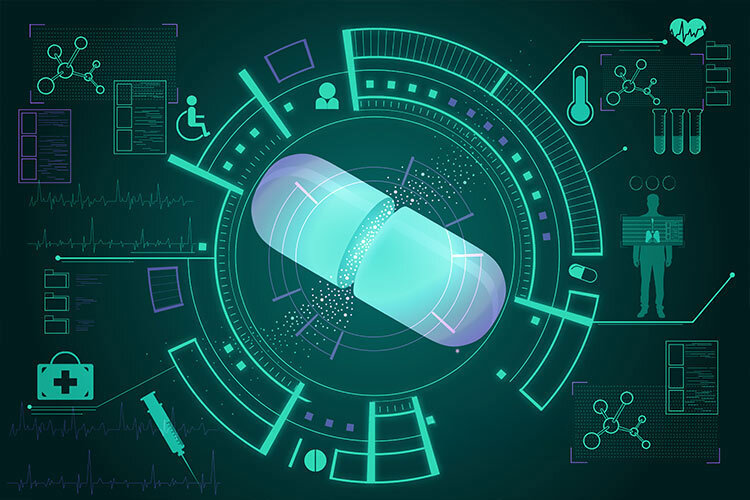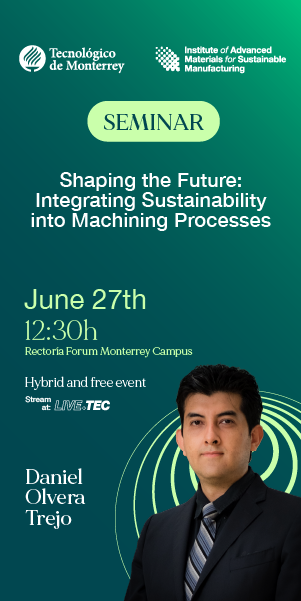Being Mexican is something to be proud of. We enjoy our pozole. Every November we make fun of death. The acrobatics of the Papantla flyers make us hold our breath. We get goosebumps when we hear Moncayo’s Huapango, but there is something within us that defines us and is still a mystery: our genome, the complete set of our DNA.
This is the mystery that the oriGen Project is looking to solve. However, to succeed, they need 100,000 Mexicans who are willing to participate.
The need to understand our genome
Of all the analyses that exist worldwide, less than 1% have included Latin American populations. This is mainly due to a previous lack of infrastructure for carrying out genetic studies of such size in Latin American countries, compared with countries in the Global North.
Two years ago, Guillermo Torre, Rector of TecSalud, along with Víctor Manuel Treviño-Alvarado and Elena Cristina González Castillo, both researchers and professors at Tecnológico de Monterrey, conceived the idea of a project that would allow us to get a better understanding of the Mexican population from a genomic perspective.
The OriGen Project will sequence the genome of 100,000 Mexicans from 17 cities around the country. According to Pablo Kuri Morales, the project’s Director since March 2022, “it’s an extraordinary and unique project for Mexico and Latin America.”
Kuri Morales is recognized as one of the leading experts in emergencies, health and safety, and pandemics. In 2009, he participated in the epidemiological response to the AH1N1 influenza outbreak, he held the position of federal Undersecretary of Health for seven years, and was a professor at the National Autonomous University of Mexico (UNAM) for more than three decades.
In an interview with TecScience, he explains that this is not the first project that has sought to carry out genetic studies of the Mexican population.
The National Institute of Genomic Medicine has mapped Mexican genes, as well as the Mexican Biobank of Metabolic Diseases, among others.
However, oriGen is unique for the number of people it will sequence, the fact that they will be randomly selected from an age range of 18 to 70, and that they will represent the population of the south, center, and north of the country.
A preventive health system, not just a reactive one
The genome is the complete sequence of DNA in an organism. This contains all the information needed for that organism to develop and exist. Understanding it allows scientists to prevent and treat diseases more precisely, based on the particular genetic characteristics of each population.
In countries such as UK, Canada, and the United States, mapping the genome of their populations has allowed them to generate preventive strategies that are specifically tailored to their people to prevent them from developing serious diseases. This has significantly increased their quality of life.
According to Rocío Alejandra Chávez Santoscoy, a researcher and professor at Tec de Monterrey’s School of Engineering and Sciences and a member of the oriGen Project, Mexico has a reactive system that acts only when people are already sick and in need of care, which often is complicated, expensive, and exhausting.
For her, this is not an effective strategy since the diseases that most afflict the Mexican population, such as diabetes and obesity, continue to rise. “The only way to improve is through prevention, and the only way to prevent is to understand,” she says in an interview with TecScience.
Once the genomes of these 100,000 Mexicans have been sequenced, the information will be stored in a biobank that can be accessed by researchers and scientists who want to further research on the relationship of certain genes with other factors affecting the population, such as the Mexican environment, economy, or diet. It will serve as the basis for a plethora of investigations and improvements in the health system.
The first steps
After two years of planning, the Project is finally ready to go out into the field and start asking Mexicans to take part in the oriGen Project. The pilot stage, which began on January 16th, 2023, will seek to sequence the genome of 1,000 to 1,500 people from four municipalities in the Monterrey metropolitan area.
This stage will take one to two months and the team hopes it will show them what adjustments need to be made so that everything goes smoothly from then on. “To get to the 100,000th step, we need to take the first step,” says Kuri Morales.
The next goal is to sequence the genomes of 16,000 Mexicans by June or July 2023. By 2025, they plan to have all 100,000 sequenced.
The protocol consists of a sample collection stage, in which a trained team of experts will visit randomly selected houses to extract blood from family members. “These people who will visit you in your homes have a lot of experience in this. They’re not just anyone,” emphasizes Chávez Santoscoy.
Afterward, they will be asked to complete a questionnaire of around 500 questions, based on the National Health and Nutrition Survey (Ensanut, for its initials in Spanish), questions from the National Institute of Statistics and Geography (Inegi, for its initials in Spanish), and the UK Biobank.
The aim is to collect data on family health history, lifestyle, and alcohol or tobacco use, among other aspects of their lives that could affect their health. This will allow researchers to link the sequenced genetic data to these habits.
Once in the laboratory, the blood collected is sent to another laboratory that specializes in isolating the DNA from the cells. Then, the DNA is sent to the Chávez Santoscoy laboratory, where the data is sequenced.
DNA is a very long molecule that contains a large amount of data. In order to interpret this information, scientists place the samples in machines that specialize in digitizing genetic information, so that it can be decoded, sorted, and interpreted by experts. “Have peace of mind that all the information will be duly protected and confidential,” says Chávez Santoscoy.
As part of the protocol, researchers will perform blood tests to identify participants’ levels of glucose, triglycerides, and other health indicators, and will recommend a diet for them based on their results.
A step forward for Mexico
For the oriGen team, the Project is the result of years of careful planning and research. Even more, it represents a genuine interest in helping the Mexican population to be healthier, have a better quality of life, and be able to live for many years without major medical complications.
The people who agree to donate their blood and answer the questionnaire will be part of an initiative that could be a very good thing for Mexicans.
“We all have a relative or an acquaintance who has cancer, obesity, or diabetes, which has reduced their quality of life,” says Chávez Santoscoy.
This way, participants of a project like this will be part of the change and help their loved ones and many more. “They’ll contribute to improving the health of the population,” says Pablo Kuri.




















